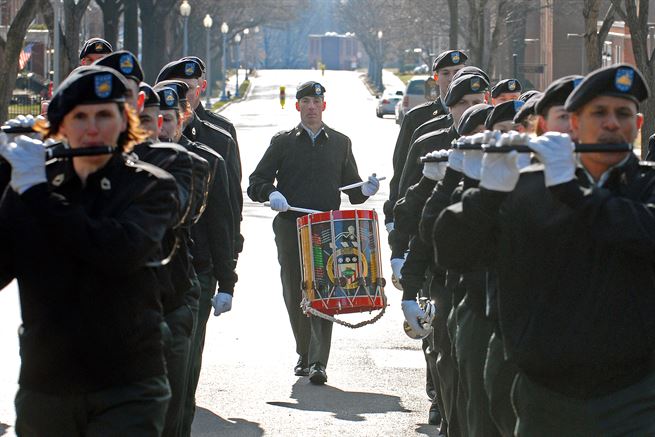
When it comes to the veteran support community, there are fewer subjects, in my opinion, that are more sensitive than Veteran Suicide. There are also fewer subjects that are more individualized, and more complicated. Let me throw this firebomb of a question out there:
Are there some circumstances that make it acceptable for someone to take their own life?
Before you close this, or block me, or respond, take a moment and consider the thought that comes to your mind. Without judgement, without anyone knowing what thoughts you’re having right now, consider your answer. It doesn’t make you a bad person, if the answer is that there might be some circumstances where it would be acceptable. It means that you have a complicated opinion on a complicated subject.
Personally, just to give you my answers to the quiz, I don’t believe that there are any circumstances in which suicide is acceptable. But I know that some of you do.
I’ve had this discussion before, when I lead Applied Suicide Intervention Skills Training workshops while on Active Duty. In a portion of the course that helped participants understand their attitudes and values towards suicide, a similar question to the one above is asked, and a discussion about people’s answers always proved instructive. For me, when people tended to admit that suicide might be acceptable under certain circumstances, I would ask about those circumstances. Some of that, I’ll talk about in a minute. For those who said that it is never acceptable under any circumstances, I would ask them:
What about Ariel Castro? The world was shocked in 2013 when it was found that three women had been held captive and repeatedly raped by Castro for over a decade. He was convicted of kidnapping and rape and sentenced to over 1,000 years of correctional custody. For someone to have committed such prolonged torture and abuse, committed such detestable crimes, is the taking of their own life acceptable? Or understandable? Some would say, “Coward’s way out.” Some would say, “Poetic Justice.” This type of situation in which someone takes their own life after committing a crime, this is one of those complicated factors. In the 24 hours before this post was published, the media widely reported on two separate circumstances of suicide. First, murder suspect, Steve Stephens, who was being sought by police after posting a video on Facebook of himself committing murder, took his own life while he was being chased by police. Second, convicted murderer and former New England Patriot Aaron Hernandez, who was found in his jail cell on the morning of 19 April, 2017, after he had apparently taken his own life. Was suicide acceptable in this case? Your opinions are your own, of course, and I for one won’t judge you for them.
What about those who are suffering with extreme pain or facing a known debilitating illness? This argument stretches back to my childhood, with Jack Kervorkian making his argument for physician-assisted suicide for terminally ill patients. My first roommate in the Army was a huge Chargers fan, and when Junior Seau took his own life in 2012, I immediately thought of him. Seau was found to be suffering from Chronic Traumatic Encephalopathy (CTE). CTE is a degenerative disease found in individuals who have endured a severe blow or repeated blows to the head. Common in football players…and possibly veterans. Another example, not that it’s needed, is Robin Williams, whose widow believes that he killed himself as a result of a degenerative neurological disease called diffuse Lewy body dementia. Some may argue that, faced with inevitable degenerative mental or physical illness, it might be a blessing for someone to take their own life, rather than endure the pain and suffering, and put their families through that.
The problem with each of these cases is that we can speculate all we want, but the answers…the “why”…ended with each of them. No definitive suicide note was found with any of them, no explanation. For some, no explanation would seem to be necessary. Of course Stephens and Castro would take their own life, look what they did. Tragic as they were, the deaths of Seau and Williams might be understandable, knowing what they were facing. This is one of the ultimate tragic problems with suicides…the eternal unanswered question of “why” and “what could I have done?”
As a mental health counselor that works exclusively with veterans, I have to keep in mind that it is a distinct possibility that some veterans I work with are at increased risk of taking their own life. The causes are as numerous and varied as the circumstances that each veteran has experienced. I can only hope that I provide enough of a sense of trust and connection that they will choose to reach out for help before taking that final, irrevocable step. I also have to be aware of my own complicated attitude toward suicide in general, and veteran suicide in particular. I don’t want to see a veteran homeless. I don’t want to see them in jail. If only my wanting to be so made it so, I would be pleased…but I know that it will continue to happen. I certainly, clearly, and absolutely don’t want to see a veteran die by their own hand. In as many ways as possible, as often as possible, I want to make that point.
I don’t consider any circumstance acceptable for a veteran to take their own life. Even the most vile, heinous, criminal act, even the most degenerative disease. That’s just my opinion, and I appreciate that others might have theirs. I know, however, that shaky breathless moment that exists after you’ve just found out that you’ve lost another brother or sister. Or family member. The world is forever irrevocably changed after someone you know has taken their own life.
What were the names of the veterans who took their own life yesterday? Or the ones who took their life on the day Robin Williams killed himself? Just because we don’t know who they were, doesn’t mean that they didn’t impact the lives of those who knew them the way these high-profile instances impacted many of us. Taking the time to consider and understand your own complicated attitudes toward suicide can be beneficial in making a difference in those around you.

The Head Space and Timing Blog is supported by the Colorado Veterans Health and Wellness Agency, a 501(c)3 Nonprofit in Colorado Springs, Colorado. The goal of the CVHWA is to provide military culturally competent mental health counseling to veterans and their spouses, regardless of characterization of discharge, time of service, or era of service. Our vision is to assist veterans to identify and remove barriers to their mental, physical, emotional, and behavioral wellness. For questions or inquiries, contact us!



7 Comments
Gordon Brown · April 20, 2017 at 2:03 pm
In my opinion you miss two very critical components to the Veteran suicide issue and made in my opinion a flawed conclusion to base your opinion. You say there is NO reason or justification for suicide.
You never mentioned the physical damage from a traumatic brain injury (TBI) to the frontal and temporal lobes, (simplistically these areas control executive decision and language comprehension capabilities). You never mentioned the standard of care the VA protocol utilizes and that being the excessive use of psychotropic drugs. Most of these drugs have “black box” warnings relating to the effect of suicide ideation. With these two factors recognized a perfect storm has been created for Veteran suicide.
As a former federally licensed psychologist that treated heroin addicts out of Vietnam and Guam in the late 70’s AND a 14+ year survivor of a near fatal traumatic brain injury (I died twice post-op from grand mal seizures) I do have a unique perspective. I do have some experience with suicide, having been involved in some way with over 30 suicides over the years. I’ve lost 5 of my own military Brothers to suicide. A suicide is like no other death for the family, the wound never heals.
By missing those two critical issues in your article in my opinion you perpetuate the stigma around suicide instead of moving towards a solution to the epidemic. As a former mental health professional I was very disappointed with the article.
Duane France · April 20, 2017 at 2:09 pm
Gordon, I appreciate your feedback as well as your criticism. This is a sensitive subject and my treatment of it here is by no means exhaustive. I appreciate the fact that there are medications that increase the likelihood of suicidal ideation, and that traumatic brain injury can in fact impair judgement.
While I don’t have the history of working with veterans as you have, I also have lost many veteran friends to suicide. This is a very complicated and sensitive subject, and while I am sorry that you were disappointed by the article, I am appreciative of the fact that you took the time to give your feedback and opinion. Much appreciated.
Gordon Brown · April 20, 2017 at 6:01 pm
I greatly appreciate your interest in writing about the Veteran suicide epidemic. I would ask that as a mental health professional you would be more aware of how your opinion adversely affects successful therapy.
You mentioned Junior Seau, who died by suicide in 2012 and through an autopsy it was determined he had Chronic Traumatic Encephalopathy (CTE). CTE was brought to the public’s attention as an issue only in the NFL through the movie Concussion in December of 2015.
Veterans who have repetitive concussions as in multiple shock-wave blasts, blows to the head, etc. can lead to CTE and or TBIs in Veterans. The symptoms of CTE and TBI are very similar which include and not limited to, memory loss, confusion, impaired judgment, impulse control problems, aggression, depression, anxiety, suicidality, Parkinsonism, and, eventually, progressive dementia.
Unless treated successfully, those Veterans with TBIs have a dramatically higher potential for Parkinson’s Disease, early dementia and Alzheimer’s. So, unless you are a survivor of a TBI you have no idea of the daily struggles we survivors go through on an hourly basis.
Did you notice that three of the symptoms with a TBI are impaired judgment, impulse control problems and suicidality, which I would say might be VERY critical to the potential for that Veteran to die by suicide?
Duane France · April 20, 2017 at 8:45 pm
Gordon, thank you again for your continued willingness to share your insights. Again, in the interest of having a discussion on a complicated and sensitive subject, I did not fully explore the impact that traumatic brain injury has on those who suffer from it, and their increased risk of suicidal thoughts and behaviors.
I did deliberately choose Junior Seau, specifically because of his diagnosis of CTE. As you can see, I linked to a journal article by Dr. Omalau…from the movie Concussion…and his colleagues, which present a case study of a veteran whose PTSD symptoms and eventual suicide could be linked to CTE.
I do not deny that the decreased ability and diminished capacity that can result from traumatic brain injury can lead to suicidal thoughts and actions. That, however, does not mean that I think that it is acceptable, or appropriate, which is my original premise. I am extremely aware of how my personal opinions impact the veterans I’m working with, but my intent is to start a discussion here. Thank you again for your continued willingness to engage.
Victoria Givens · July 5, 2017 at 1:47 pm
I can respect what you are saying BUT, you ever spent a night in a psych ward, or better yet A VA ward. Wait on the crisis hot line only to be hung up on. Ask for help and made 2 wait over 30 days.
Yes you spoke of highly unusual situation. As a but yourself in that person shoes and then ask yourself again.
Duane France · July 5, 2017 at 1:57 pm
Victoria, thank you for your reply and your frustrations are entirely justified. There are mental health providers available and willing to provide support, and I recognize that the lack of responsiveness can lead to veteran suicide. I still feel, however, that it is preventable, if enough of us continue to have conversations, and the courage to speak out the way you have.
National Suicide Prevention Week 2017 — Head Space and Timing · September 14, 2017 at 5:08 am
[…] The (Inappropriate) Case for Suicide […]
Comments are closed.